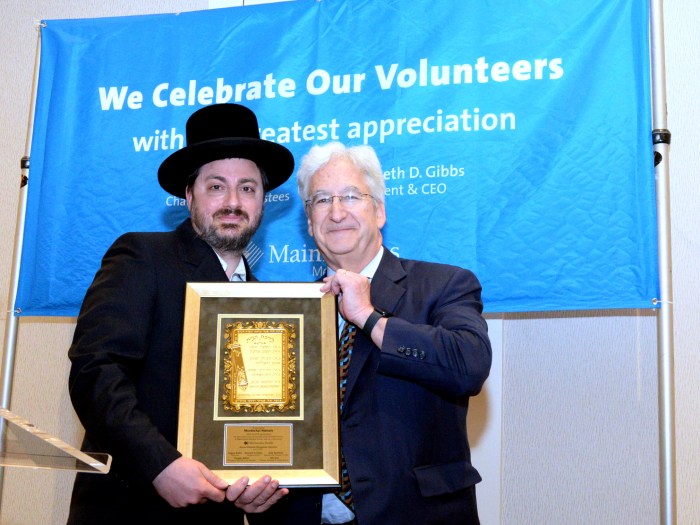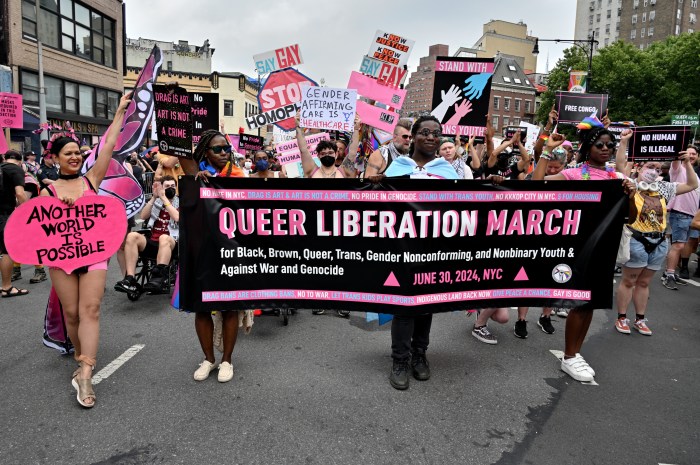A recent book tells Brooklyn’s fascinating history through the eyes of an unknown but remarkable man.
In “He Could Make Words Sing: An Ordinary Man During Extraordinary Times,” author David Greene writes about Harry Greissman, whose experience growing up as a first-generation American during the Great Depression and fighting in World War II before settling down in quaint Marine Park can teach younger folks how to keep their problems in perspective, according to the author.
“Maybe we can use his experience to guide ourselves through the 21st Century,” said Greene, son-in-law of the late Greissman, who died in 1997.
The start of the book deals with the difficulties Greissman, the son of Orthodox Jewish immigrants from Austria, had assimilating into American society in Borough Park, in part due to the heavy demands of his parents’ faith.
“Americanization also meant fitting in, not being different” wrote Greene. “It included doing American things that violated ancient customs and traditions, like going to Saturday Dodgers games.”
Greissman’s struggles were compounded by the fact that Brooklyn was home to some actual Nazi sympathizers in the German-American community in the 1930s, making his assimilation into American life even more difficult.
“How could they sympathize with a racist, anti-Semitic national leader?” wrote Greene on Greissman’s reaction to learning of a “Friends of the New Germany” meeting in the borough in 1934, held by an American pro-Nazi group.
Greissman fought in Europe in World War II, having been drafted in 1941, and notably stayed in Germany after the war to work as a German translator for the Army during the Allied occupation, assisting with investigations into war crimes.
It wasn’t until Greissman bought a home in Marine Park on E. 36th Street near Avenue U that he finally settled into a normal life, and he appreciated the remote tranquility of the newly-built neighborhood, where he and his family moved into a traditional two-family duplex.
“Marine Park was still underdeveloped enough that across the major roadway there were tar pits, and it was somewhat isolated by a lack of subway access,” wrote Greene.
Greissman appreciated the welcoming nature of Marine Parkers, and the suburban lifestyle the area maintained within the city.
“It was a chance break away from the streets where he grew up. It was a refreshing, brand new place near the water,” said Greene. “Kids grew up in a family-friendly place without the chaos of more urban areas of Brooklyn.”
Part of what made Marine Park so family-friendly was the legacy of the Great Depression, according to Greene.
“Fifties parents stressed the importance of the attachment to home, family, and children. They were children of the Depression,” he wrote. “Many had seen their fathers lose their jobs and their families struggle to make ends meet. They viewed strong families as especially desirable because hard times had weakened so many families.”
The only reason Greissman left Marine Park years later was due to the rigorous commute from the nabe to the distant isle of Manhattan, where he worked in advertising.
Greissman’s dream was to be a writer, but he opted for advertising so he could support his family, and Greene suggests that his father-in-law wished he had made a leap of faith to pursue his dream.
“People should think ‘can I take this chance?’” Greene said. “Always take that chance.”
Nonetheless, Greissman’s talent for writing — be it novels or ad copy — was not forgotten. The title of Greene’s book, “He Could Make Words Sing,” is taken from the epitaph on Greissman’s headstone.
“He Could Make Words Sing: An Ordinary Man During Extraordinary Times,” by David Greene. (hecou























